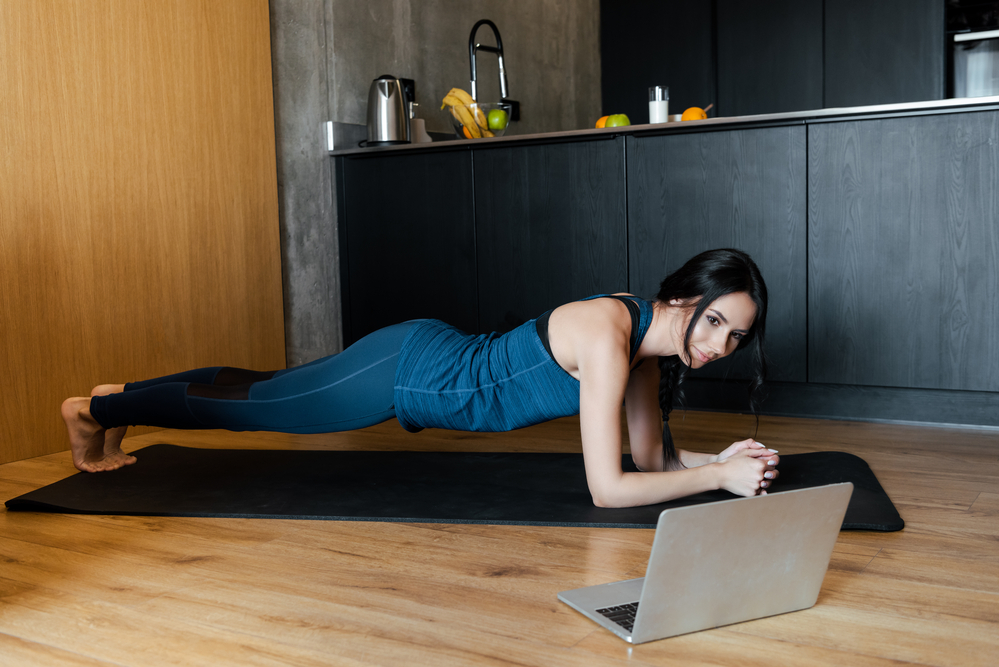“Exercise is one of the best ways for the human body to relieve stress and release anger.” – Allison Pescosolido, M.A.
One of the common – and increasing – side effects of the COVID-19 pandemic and the response of shut-downs and stay-at-home orders is a collective increase in stress and anxiety.
Staying Home But Stressing Out
It’s been shown that people who work out regularly and have above-average fitness also have stronger immune systems. And, during a virus pandemic such as COVID-19, this is important.
But just as important to our physical health is our mental health.
The problem is that stress and anxiety can diminish our overall sense of well-being while actually affecting our physical health in a number of ways. And the effects are cumulative over time. While short term suppression of the immune system is not dangerous, chronic suppression leaves the body vulnerable to infection and disease.
In fact, there many observers of the current coronavirus response that fear the “cure” may be more dangerous than the “affliction.” An article at SimplyPsychology.org notes that,
“Stress responses increase strain upon the circulatory system due to increased heart rate etc. This may increase a person’s risk of developing disorders of the heart and circulation e.g. coronary heart disease (CHD). Individuals with type A personality have a greater risk of developing CHD.
Stress responses have an effect on the digestive system. During stress digestion is inhibited. After stress digestive activity increases. This may affect the health of the digestive system and cause gastric ulcers.
According to Psychology Today magazine,
“Some experts claim that stress is responsible for as much as 90% of all illnesses and diseases, including cancer and heart disease. The way it does this is by triggering chemical reactions and flooding the body with cortisol that, among other things, decreases inflammation, decreases white blood cells and NK cells (special cells that kill cancer), increases tumor development and growth, and increases the rate of infection and tissue damage.
Because the effects of stress are cumulative, even ordinary, day-to-day activities can eventually lead to more serious health issues.”
The good news, however, is that it’s also been shown that people who work out regularly have lower levels of stress and perceived anxiety.
Working Out Stress by Working Out
Fortunately, as we’ve noted in a previous blog post here, it is quite possible to begin or maintain a robust exercise regimen while being “cooped up” at home for extended periods of time. In fact, many former fitness club users have discovered that they can do almost as much at home with little or no equipment, in terms of cardio benefits
The Mayo Clinic notes that,
“Exercise increases your overall health and your sense of well-being, which puts more pep in your step every day. But exercise also has some direct stress-busting benefits.
- It pumps up your endorphins. Physical activity helps bump up the production of your brain’s feel-good neurotransmitters, called endorphins.
- It’s meditation in motion. As you begin to regularly shed your daily tensions through movement and physical activity, you may find that this focus on a single task, and the resulting energy and optimism, can help you remain calm and clear in everything you do.
- It improves your mood. Regular exercise can increase self-confidence, it can relax you, and it can lower the symptoms associated with mild depression and anxiety.”
This is supported, as well, by the Anxiety and Depression Association of America (ADAA),
“The physical benefits of exercise—improving physical condition and fighting disease—have long been established, and physicians always encourage staying physically active. Exercise is also considered vital for maintaining mental fitness, and it can reduce stress. Studies show that it is very effective at reducing fatigue, improving alertness and concentration, and at enhancing overall cognitive function. This can be especially helpful when stress has depleted your energy or ability to concentrate.”
In addition, the American Heart Association, the American Psychological Association, and Harvard Medical School all agree that physical activity, exercise and working out has a significant and measurable impact on stress and anxiety.
The bottom line is that staying physically active by exercising and working out is critical not only for maintaining physical and cardio fitness, but for fending off the unexpected effects of staying at home and “sheltering in place.”
Working With Pain and Performance Solutions for Pain Relief
If you are suffering from chronic pain or injuries, the first step in recovery is for us to get to know you and your pain issues. Once you make your first appointment, we’ll learn about your present discomfort as well as any history of discomfort.
After a full examination we’ll determine which form of treatment is needed to help you on your road to recovery. As our bodies start to compensate for pain, this can allow you to move on with your day. However, your body can also shift that pain around to compensate for your discomfort and this can lead to other forms of pain.
Pain relief can only begin when we can understand where your pain started. That could mean it started a while back with another injury you might have sustained.
Your trust in us is key, as is your honesty. Ultimately, getting your body working properly and healthy is the only way to achieve total recovery. So, don’t hesitate to reach out. We are here to help and will answer any, and all questions that you may have
You can reach us at (707) 636-4404 or by filling out our online contact form.
